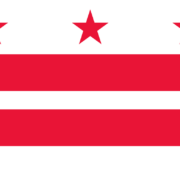Promoting Wage Transparency in Alaska: Spotlight on House Bill 156
Introduction
In a significant step toward advancing workplace equity and transparency, Alaska introduced House Bill 156 (HB 156) in 2025. This legislation focuses on the disclosure of wage information by employers, employees, and job applicants. As wage transparency laws gain momentum across the U.S., HB 156 positions Alaska to join the growing number of states committed to fair pay practices. For employers, understanding the scope of this bill and preparing for compliance is essential.
Understanding Alaska House Bill 156
HB 156 is designed to promote transparency in compensation practices and reduce wage disparities. The bill outlines provisions that:
- Require Employers to Disclose Compensation Information: Employers must provide wage details to employees and job applicants, ensuring that individuals have access to relevant pay data during hiring and employment.
- Protect Employee Rights to Share Wage Information: The bill affirms that employees can discuss or disclose their own compensation without fear of retaliation.
- Support Applicant Access to Pay Data: Job seekers are entitled to request and receive wage information related to the positions they are applying for.
These measures aim to foster a more equitable job market by empowering individuals with the information needed to make informed decisions and advocate for fair compensation.
Recent Legislative Activity
HB 156 has seen active movement through the Alaska House:
- Referred to the Judiciary (JUD) and Labor & Commerce (L&C) committees in March 2025.
- Received committee reports in May 2025, with support from multiple representatives.
- Now referred to the Finance Committee, indicating continued momentum toward passage.
Employment and the Role of Third-Party Audits
Third-party audits play a vital role in helping employers comply with wage transparency laws like HB 156. These audits provide:
- Independent Verification of Pay Practices: Ensuring that compensation structures are fair, consistent, and aligned with legal requirements.
- Identification of Pay Disparities: Highlighting gaps across gender, race, or other protected categories.
- Documentation for Compliance: Offering clear records that demonstrate good-faith efforts to meet transparency standards.
- Support for Internal Equity Reviews: Helping HR teams and leadership assess and adjust compensation policies.
How Canopy Can Help
Canopy offers tailored solutions to help Alaska employers prepare for and comply with HB 156:
- Wage Transparency Compliance Framework: Build internal policies that align with HB 156 and other emerging wage laws.
- Third-Party Pay Audits: Conduct independent reviews of compensation practices to identify and correct disparities.
- Salary Range Validation Tools: Ensure posted ranges are accurate and competitive.
- Training and Education: Equip HR teams with the knowledge and tools to implement transparent pay practices.
- Continuous Monitoring: Track changes in compensation and compliance over time.
Conclusion
Alaska House Bill 156 reflects a growing commitment to wage transparency and fair employment practices. As the bill advances through the legislature, businesses should take proactive steps to align with its principles. Canopy’s comprehensive solutions empower employers to lead responsibly and build trust through equitable pay.
For more information on how Canopy can help your organization comply with Alaska HB 156, visit our website or contact our team of experts today.










Leave a Reply
Want to join the discussion?Feel free to contribute!